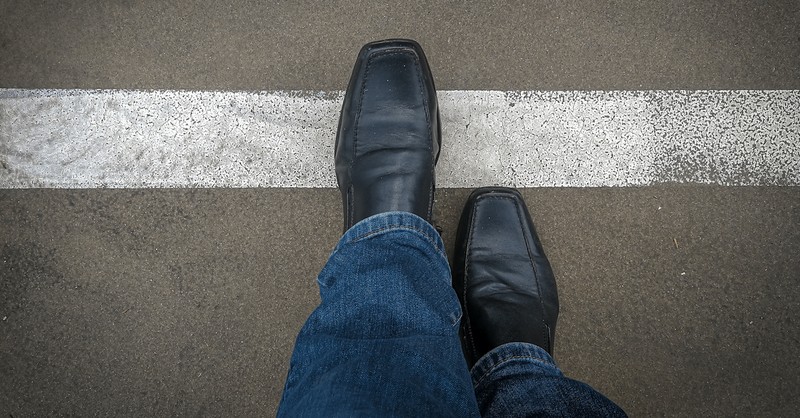
A man and woman take on a major responsibility when they bring children into the world. The moment a child is born, those two people who were only husband and wife are now parents. Suddenly, their commitment is not just to one another, but to their newfound family structure.
The role of parenting is as difficult as it is rewarding. Parents are tasked with much responsibility including: feeding, teaching, providing, nurturing, loving, and sacrificing all on behalf of their children. Parenting is no easy feat. To this day there is a wide array of parenting guides and books all intended to give helpful advice. The Bible too, offers every bit of needed wisdom for those venturing into the roles of parents.
God values the roles parents fulfill. He values their role so much He gives a commandment for the parent-child relationship.
“Honor your father and your mother so that you may have a long life in the land that the Lord your God is giving you.” (Exodus 20:12)
Honoring someone means to hold them in high respect or regard. As important and valuable as this commandment is, how do we honor parents who act dishonorably? Parents can teach children the greatest lessons, while also leaving the deepest wounds. Sometimes these wounds are inflicted by merely speaking words. The truth is, despite all the wisdom and guidance at hand, parents, like their children, are humans who sin (Romans 3:23).
Sin can lead parents to say things to children that breaks down confidence, motivation, even faith. However, the beginning and the end to a child’s potential, is not limited to their parent’s influence. We know this because our parents have suffered in some ways from their parents, and we too have suffered to some degree from our own.
Even when harm is done, here are 5 ways to start healing from a parent’s hurtful words today.
Photo Credit: © LittleBee80

Pray
“Even if my father and mother abandon me, the Lord cares for me.” (Psalm 27:10)
In the dark moments where we feel hurt by our parents, God is ever-present and willing to hear from us. God is constantly available to us through prayer, whether uttered bedside from a kneeling position, in our minds throughout the day, or the words we utter out loud in the car. God always hears our prayers.
Prayer offers healing because this gives us an opportunity to vent our hurt and frustrations to the one who loves us most — God. As Scripture indicates, God has the power to heal us of our wounds (Jeremiah 17:14). When we reach out to God, we can request healing and then trust that God will bring that in time.
When we pray, we also free ourselves from dwelling on the hurtful impact of words. Instead of ruminating on what went wrong, praying to God gives us a new direction on what can go right (Proverbs 3:5-6). When parents hurt us, what are we to do? Thankfully, God gives us the proper guidelines on how to respond to offense, even when parents are the ones offending.
Forgive
“And be kind and compassionate to one another, forgiving one another, just as God also forgave you in Christ.” (Ephesians 4:32)
Another way to heal is to offer forgiveness. The Bible mentions forgiveness a number of times, which in some verses points back to the fact that God offers forgiveness to us. If we see ourselves as sinners and God’s children, much like our parents, then forgiving them for their offenses will feel much more reasonable. Everyone has the potential to sin, thus, there is no reason why our parents would be excluded from that category.
Forgiveness does not mean pretending offense did not occur before. Instead, forgiving someone simply means no longer holding the offense against them in a way that is detrimental to the relationship. An example would be a child reminding a parent of a hurtful comment made years ago every time they come into contact. Forgiveness in this scenario could instead be the child not forgetting what the parent said, but also not rehashing old wounds.
If we don’t want God or others to remind us of past misdoings, then we should extend the same courtesy to other people.

Seek Understanding
“As shameful conduct is pleasure for a fool, so wisdom is for a person of understanding.” (Proverbs 10:23)
Sometimes we feel hurt by someone’s words because we don’t quite understand their intentions. Parents do not always do the best job at explaining themselves, especially to their children. Sometimes in the process of expecting obedience, they neglect helping their child understand their behavior.
When understanding is established, both parties are clearer on intention and the impact of the words spoken. The best way to reach mutual understanding and healing is to communicate.
Communicate
“Iron sharpens iron, and one person sharpens another.” (Proverbs 27:17)
While we can work to heal from a parent’s hurtful words on our own through prayer and forgiveness, talking about our issues with the parent can be fruitful too. Not everyone recognizes their sin, nor that their words are hurtful. We can know this to be true by simply looking at ourselves.
Everyone makes mistakes and has spoken words that were either intentionally hurtful or were misinterpreted. In either case, coming together for discussion can clear up the air and remove animosity. If both people talk and feel better afterwards, then healing has begun.
Photo Credit: © Getty Images/fizkes

Set Boundaries
“If possible, as far as it depends on you, live at peace with everyone.” (Romans 12:18)
The saddest part about parent-child relationships is that some wounds take a long time to heal, while others never heal completely, not in this lifetime. While not every relationship will have a perfect level of peace, we can do our part to establish some balance of harmony. This may mean setting boundaries with a parent to avoid hurtful words and actions.
Honoring parents doesn’t have to be up-close, especially when personal interactions constantly lead to abuse and hurt. Such a relationship is not godly or healthy.
With boundaries in place, children can engage in only the activities that sustain the relationship in a healthful way while also bringing healing.
Be the Change
Our parents aren’t perfect. Neither are we. Thank God, He does not expect perfection for admittance into Heaven.
Just as He values our relationship with parents, we can strive to do so also. With the imperfections of human nature in place, hurt will occur. Parents may say or do hurtful things. We may also. Whatever occurs, healing is always made possible. We simply have to choose healing instead of harboring the hurt.
Once we decide to be the change we wish to see in others — our parents — we can set a better example for the generation that follows.
Photo Credit: © trinculo_photo
Originally published Thursday, 20 May 2021.





